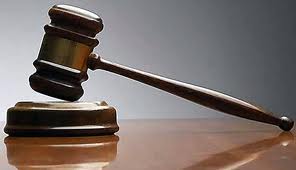A Snippet On Personal Bankruptcy Law For The Debt Stricken Consumers

Personal bankruptcy is a legal process that helps the filer to give a fresh start by discharging his/her financial woes with ease. If you’re struggling to come of the debt rut and constantly receiving threatening calls from the debt collectors, then filing personal bankruptcy can be a better option. Most of the people do not have complete information on personal liquidation law. Therefore, you can read the following points to get more information on this law. There are two chapters under personal bankruptcy law. Well, Chapter 7 is popular known as Liquidation Bankruptcy and Chapter 13 is popularly known as Wage Earner’s Bankruptcy. You can read on to get more information on the personal bankruptcy process.
A discharge in bankruptcy is releasing the debtor from unsecured liabilities. Well, you may not be able to discharge all your debts like debt incurred through child support, alimony or student loan debt. A bankruptcy is actually a permanent order that prevents the creditors from any collection attempt on discharged debt.

The time of discharge depends on the chapter under which you have filed. If you file under Chapter 7 Bankruptcy, then the court can grant discharge with ease once the time expires for filing complaint leading to an objection to discharge. In most of the cases, complaint occurs near about four months after the date the filer files petition with the bankruptcy court.
In Chapter 7 Bankruptcy, there is no repayment plan in this process. A bankruptcy trustee appointed by the bankruptcy court may supervise your filing process. He may sell your non-exempt assets to pay off the creditors. After the selling the non-exempt assets, the proceeds are distributed equally among the creditors. This is one of the major reasons behind Chapter 7 being popularly known as “Liquidation Bankruptcy.” Under the Bankruptcy Code, the filer is allowed to keep certain exempt property.
In order to be eligible for discharge under Chapter 7 Bankruptcy you need to qualify for a Means Test. If your total income exceeds median income of your state, then you may not be eligible to file under Chapter 7 Bankruptcy.
You can manage to eliminate your debts if your unsecured debt is less than $360,475 and secured debts are less than $1,081,400. 11 U.S.C. § 109(e). This personal bankruptcy offers a repayment plan to pay off the owed amount.
When you file petition with the bankruptcy court, you need to declare your assets, liabilities, current income as well as expenses, unexpired leases and so on. Along with the petition, you’re required to submit a copy of completion of credit counseling session along a debt repayment plan. The court appointed trustee may review your repayment plan and after his/her consent you start repaying the owed amount according to the new payment plan.
Therefore, you need to keep the above mentioned points in mind if you’re planning to file personal bankruptcy to eliminate your financial woes. However, bankruptcy may blemish your credit report for 7 to 10 years but it can help you give a fresh start.
